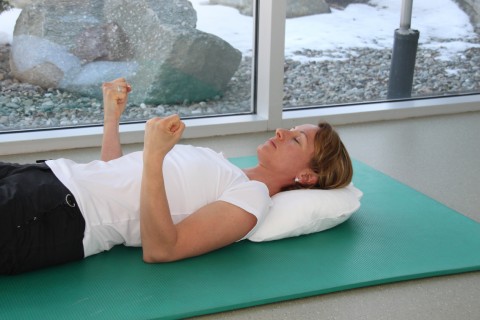Medical expert of the article
New publications
6 ways to get rid of stress
Last reviewed: 01.07.2025

All iLive content is medically reviewed or fact checked to ensure as much factual accuracy as possible.
We have strict sourcing guidelines and only link to reputable media sites, academic research institutions and, whenever possible, medically peer reviewed studies. Note that the numbers in parentheses ([1], [2], etc.) are clickable links to these studies.
If you feel that any of our content is inaccurate, out-of-date, or otherwise questionable, please select it and press Ctrl + Enter.
Stress is a natural part of our lives, a response to worries or fear. And although it is not the most pleasant feeling, stress is still one of the drivers of human activity. However, an excessive "dose" of stress will have very negative consequences - the body will become more susceptible to diseases and productivity of work will decrease significantly.
When a person is under stress, the brain sends signals to produce hormones such as adrenaline and cortisol. These hormones cause the heart to beat faster, blood pressure to increase, muscles to tense up, and breathing to become shallow and abrupt. Given these consequences, frequent stress weakens the immune and nervous systems. Stress hormones cause the body to increase blood clotting, so stress can lead to a heart attack. In addition to physical harm, stress can also trigger mental disorders: bipolar disorder, schizophrenia, and panic attacks.
Read also: Relieving stress: tips from around the world
More and more people experience high levels of stress. The most important factor that provokes stress is work.
To prevent stress from becoming the norm and posing a threat to your health, arm yourself with several methods for eliminating it.
Exercise and rest
The most effective method of combating stress is regular exercise. According to numerous studies, those people who are in good physical shape are much less susceptible to stress problems. Activity helps a person to throw out all the negativity and not keep everything inside. In addition, the blood flow to the brain increases, which contributes to the supply of more oxygen, and this, in turn, clarifies thinking.
Massage
Massage relieves muscle tension, and stress follows. If you don't have the opportunity to visit a massage therapist, you can easily do massage procedures yourself. It's enough to massage your arms, legs, neck and shoulders for a few minutes.
Progressive muscle relaxation (according to Jacobson)

The idea behind this technique is to alternately relax and tense the muscles. The person focuses on one part of the body, and begins the procedure with the neck, finishing with the toes. Sit comfortably, close your eyes and begin.
Breath
Surely everyone has noticed from their own experience that restoring normal breathing helps to cope with worries and stress. If stress has caught you by surprise, it will be very useful if your body is accustomed to diaphragmatic (abdominal) breathing. But for this you need to train your diaphragm.
Meditation
Meditation can be an effective method for relieving stress. For example, you can mentally "go" to a place where you are calm and where you feel relaxed, for example, to the seashore, the beach, imagine that you are surrounded by friends and loved ones.
Mantras

Many religions, including Buddhism, Christianity, and Judaism, practice the use of mantras. A mantra is a repeated word or phrase that is used as a relaxing prayer. Your mantras do not have to be religious. When you are stressed, it is difficult for a person to concentrate, and a mantra helps to find balance and clears the mind.


 [
[